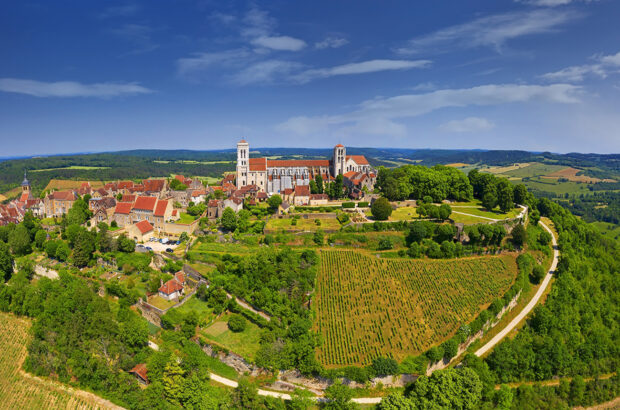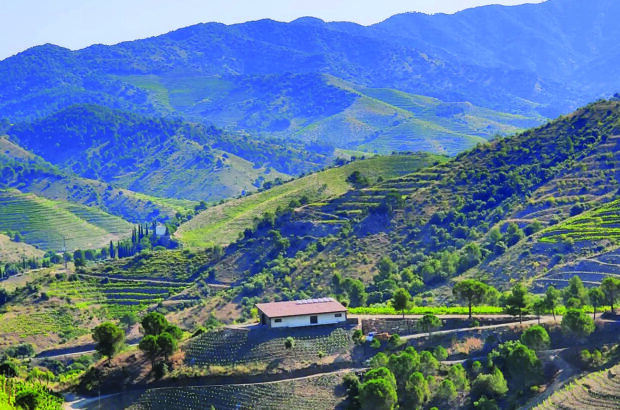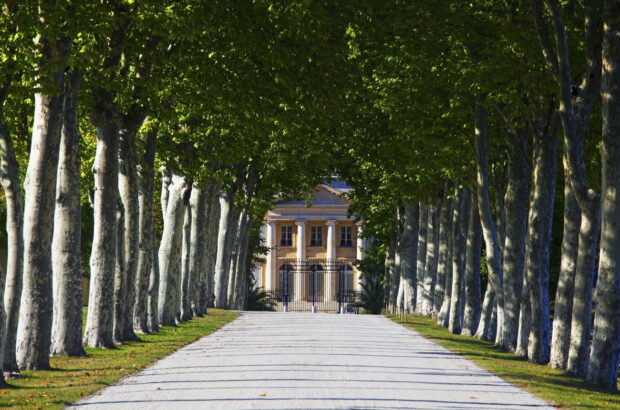Wine on Wheels was born out of Wheeling Forward – an organisation working across all forms of disability to tackle some of the most underserved and challenging areas of need in the disabled community. With its support, Wine on Wheels became a growing community of wine lovers and sommeliers who have come together to harness their passion for wine to benefit charity. Wine on Wheels brings people together from across the hospitality industry to pour wines, socialise, and raise funds to empower people with disabilities to realise their full potential. All of Wine on Wheels’ sommeliers are volunteers, and the wines are all donated by friends from various facets of the hospitality industry. The first post-pandemic Wine on Wheels takes place on 10 September 2023.
‘Very simply, I’m a second-generation restaurateur. My family all came here from France. They all worked in the restaurant business. It’s something that I always wanted to do. I never thought about doing anything else. I was very lucky at a very young age to work at some really great restaurants (Le Cirque & Felidia) and also to be under the tutelage of my family, my uncles and my cousin. In 2005, when I was at the peak of my own enthusiasm, and my career was starting to take off, I was in a car accident that left me paralysed from the waist down.
‘I had some experience with the world of disability through my family. I have a cousin that was born blind. My grandfather became blind, and I had another cousin, Guy, who became paralysed in France. He was in an accident on the family farm.
‘A few years later, it happened to me. What I never really thought about was all of the social barriers that people with disabilities face that I was going to have to deal with now. Like flying and getting my wheelchair back, and it’s broken. You think, well, this building has an elevator, but it’s not been maintained, and so it’s out of order. These kinds of things are things people with disabilities face every day.
‘When I was still in the hospital, people would come to visit me, and they were trying to be encouraging. They would say things like, “You know, Yannick, you’re still so young, you can go to law school, or you could get a degree in finance.” These were not things that appealed to me at all. Sitting in an office all day, behind a desk.
‘Now, here I was, newly injured. I was quite young and trying to get back into the wine and fine dining industries. There really wasn’t a template for how to do that. There wasn’t anyone that I could look up to and say, how are they making this work for them? Whether they were blind or hard of hearing, or anyone really. But I knew that this is what I wanted to do.
‘I’m an optimist, and I really believe in the power of positivity. I had to ask myself, will this be worth it? Will it be worth the barriers and the frustrations and disappointment I would inevitably face? I decided that it would be as long as I was learning from those things. Whether it was my mistakes, or the rejection I’d inevitably face, if I could take something positive from it, it would be worth it.
‘My mother is from Bordeaux, and that is where my love of wine comes from. I had the very good fortune to spend my summers there growing up. I remember things that I still experience, like the smell of the barrel room. In the late 80s and early 90s, you could still drive up to the châteaux, knock on the door and pick up some wine. I was with my uncle, and we visited Château Giscours. I remember listening to them talk about the wine, the hospitality they showed us. I was captivated by it.
‘My dad grew up in central Brittany. I would spend a few weeks every year up there in the north. It was very rural. The people spoke Breton, it was very traditional there, people worked small farms, and I remember it all, seeing your food grown, the smell of the soil, these were things that made me feel a certain way about experiencing food.
‘As a sommelier, I love Beaujolais. I just had a very impressive tasting with Château du Moulin-à-Vent’s Edouard Parinet. Those wines are so exciting when young, with so much energy. But we tasted wines back to the 1970s, and they just developed so much complexity. That was a wow moment for me. I have to be honest.
‘A lot of times, change happens when someone has their own experience of something or has a personal connection to someone experiencing something. I think of the story of Michel Chapoutier, adding braille to his labels. He heard an interview with his friend, a musician who was blind. His friend talked about not being able to pick out wine for himself in a wine shop. That personal connection was powerful for Chapoutier, and so it is for all of us.
‘In terms of creating inclusive spaces in the food and wine industry, as someone who’s on a wheelchair, who relies on a wheelchair, every inch matters. For someone that’s able-bodied they don’t see half an inch or an inch in their space, whether it’s an entrance or a corner. They don’t see that as being a big deal. That’s just a perspective they don’t have, which is normal, and I totally get that. But for someone like myself and many others, it really does matter.
‘And so I’m just trying to create that sort of environment in my restaurant, Contento, and at the wine shop (Beaupierre). Where someone, particularly someone that’s on a wheelchair, would be able to have that same kind of experience that I would want for them. Or that I would want for myself, actually.
‘I know that trying to create a barrier-free establishment can be challenging for a lot of businesses. Particularly if they’ve been open for a while and maybe they’re in an older building. Honestly, I get that it can be really expensive. However, there’s no excuse for not practising social accessibility, right?
‘If you have a business here in New York City, and it’s in an old brownstone, there is only so much you can do to the space itself. However, you could have a sign near the entrance down on the sidewalk and offer curbside service for people who cannot access your space. We saw how easy that was to do during the pandemic. That shows care and thoughtfulness, and it’s not too difficult.
‘Our first Wine on Wheels since before the pandemic is set for September 10th, here in New York City. We have over 40 retailers and restaurants who will be pouring wines that they’re really excited about. We’ll have over 150 wineries featured, selected by sommeliers. We also have a network of distributors and importers who have supported us, providing wines for our silent auction. So, it’s really a great community of people who have both become passionate about and aware of New York City’s disability community, but it doesn’t stop in New York. It’s across the United States. So it’s really a wonderful thing.
‘It was something we started back in 2012. We had one in Portland, Oregon, and one in Washington DC, and annually here in the city. We were slated to have the event in New York in March 2020, but obviously, that didn’t happen. As we’re an organisation that serves people with disabilities, some of whom have compromised immune systems, we didn’t feel comfortable doing an event for the last two years. But we’re excited to build it back to where it was.
‘It’s important to state that there are 61 million people in the US who identify as having a disability. That is a pretty staggering statistic. Yet, in many ways, we’re a forgotten population, but that’s one in four or five people. It’s not a small number of people that we’re asking businesses to consider. If that human element of it isn’t motivating enough, those 61 million people represent $500bn in discretionary spending power. As a business in food and wine looking to attract the next generation, it just makes good business sense to invest in accessibility. To be welcoming to the community of people with disabilities who would love to be able to come into your shop or restaurant and be comfortable there.’












